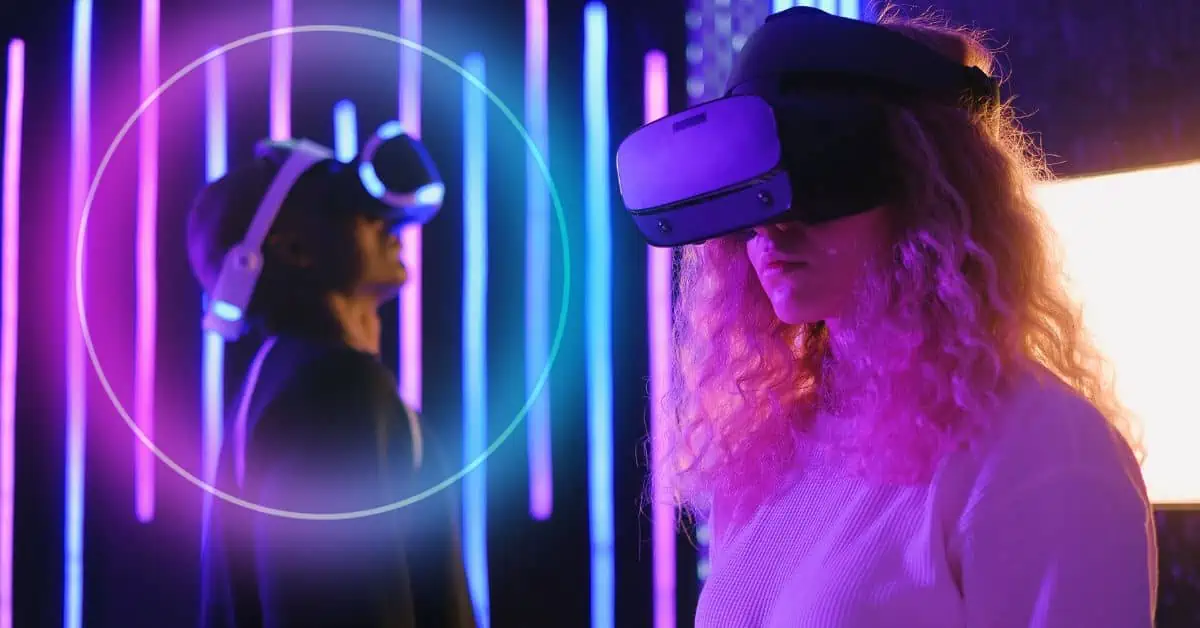The Metaverse has materialized out of nowhere or somewhere (we still aren’t 100% sure who made it or what it is), but what we do know is it’s an expanding, possibly limitless, kinda scary outermost place where human connections can develop without those pesky physical space constraints.
But as we go deeper into the great beyond or virtual realms, we need to think about all kinds of new ethical sticky situations that we never entertained before about relationships, consent, and boundaries.
But before we get into all of that, and there is a lot of that, we need to define what consent and boundaries are and how they relate to traversing the Metaverse.
What Is Consent?
Consent is the voluntary and clear agreement or permission to something, especially in the context of actions or behavior that affect oneself or one’s personal space. It is an active process of willingly and freely participating in a specific activity after receiving all relevant information.
In interpersonal relationships, particularly those of a romantic or intimate nature, getting explicit consent is fundamental to guarantee all parties involved are okay with what is happening at any given moment.
What Are Boundaries?
Boundaries are the limits or borders that people set for themselves in relationships, whether they are romantic, personal, or professional—they define what is allowed or acceptable to them and what isn’t.
These can be emotional, physical, or psychological limits that people create to protect themselves from being mistreated or taken advantage of. They are necessary for emotional well-being and to make sure that relationships are mutually respectful, happy, and healthy. Depending on a person’s comfort level, they can be adaptable boundaries or hard boundaries, and they can change based on the situation or scenario and can change over time.
Reimagining Relationships in the Digital Age
Virtual relationships have been going on long before the Metaverse seemed to suddenly appear out of thin air—from the old AOL chat rooms to massively multiplayer online games (MMOG or, more commonly, MMO), people have been making connections online for decades.
But the Metaverse—with its immersive 3D environments and intensely interactive platforms—offers a much more complex and nuanced virtual experience. The relationships formed in the Metaverse can, and sometimes do, feel just as real, if not more so, than those IRL. It’s a lot, we told you!
The Double-Edged Sword of Anonymity
One of the Metaverse’s distinctive and cutting-edge selling points is the ability to design your own 3D avatars, creating a romanticized or totally weird yet wondrous version of yourself. And although this level of anonymity can be freeing and tons of fun, it also presents a few possible problems:

- Authenticity: With the ability to hide our true selves, are our interactions real, or are they just some kind of elaborate performance art?
- Misrepresentation: It’s super easy for someone to mislead or lie to others about who they are or their intentions.
Consent in a Virtual World
Consent is a fundamental principle in any relationship. In the Metaverse, it’s even more important, as the lines between reality and virtuality can be vague and even blur at times:

- Physical vs. Virtual Boundaries: A touch or gesture in the Metaverse might not carry the same physical consequences, but it can still be seen as invasive or unwanted, depending on the person.
- Data Privacy: Interacting with others online can lay bare personal data, preferences, or behavioral patterns, making consent about what info and details you choose to share imperative.
Drawing the Line: Boundaries in Virtual Spaces
How do we establish and respect boundaries when there are no actual physical barriers?

- Personal Space: Just like in the real world, not everyone wants their Metaverse avatar spoken to or touched without consent.
- Emotional Boundaries: Emotional manipulation or gaslighting can be ramped up in virtual spaces, especially when users feel backed into a corner or can’t ‘log off” for some reason.
The Role of Platforms and Developers
Virtual environments in the Metaverse are shaped by those who create them. This means developers have a duty to:

- Incorporate Consent Mechanisms: Tools to report harassment, block users, or set personal space boundaries are a must for safety and a welcoming community—they can also empower users.
- Educate Users: Platforms should provide guidelines or tutorials on respectful interactions—and users should be required to read or watch them before being able to enter a virtual community in the Metaverse.
- Moderate Content: Admins need to be present to make sure that the virtual world is a safe and inclusive space for all.
The Power Dynamics of the Metaverse
In any society, whether it be a virtual one or in the real world, power dynamics always come into play. Who controls the narrative, the environment, or the functions?

- Gatekeeping: The more advanced the tech, the higher the potential for exclusion—accessibility should be made a high priority.
- Monetization: If relationships or interactions can be monetized, like with virtual or even real gifts, it could create power imbalances or exploit vulnerable users.
Bridging the Gap between Reality and Virtuality
For many, the Metaverse is just an exciting escapism, a chance to be someone else or experience something new. But for some, it might become the sole space for social interaction. To bridge the gap between the two worlds, there are some things to keep in mind.

- Transparent Communication: Honesty about intentions, feelings, and boundaries is just as important as in real-life interactions.
- Respect for Choices: Everyone has the right to choose how they interact in the Metaverse with zero judgment or pressure from other users around them.
The Future of Virtual Ethics
As we stand on the precipice of this emerging digital uprising, the importance of ethical considerations cannot be denied or overlooked—we need to make sure that the Metaverse does not become a dystopian nightmare but rather a utopia of mutual understanding, respect and, above all, genuine connection.
Last Takeaways
The Metaverse offers endless possibilities for human connection, but, like the Spider-Man proverb says, “With great power comes great responsibility.”
For users and developers, it’s up to them to negotiate this new digital world with care, discernment, and, most importantly, respect for one another’s boundaries and choices. Only then can they guarantee that their virtual relationships are as meaningful and genuine as their IRL ones!
